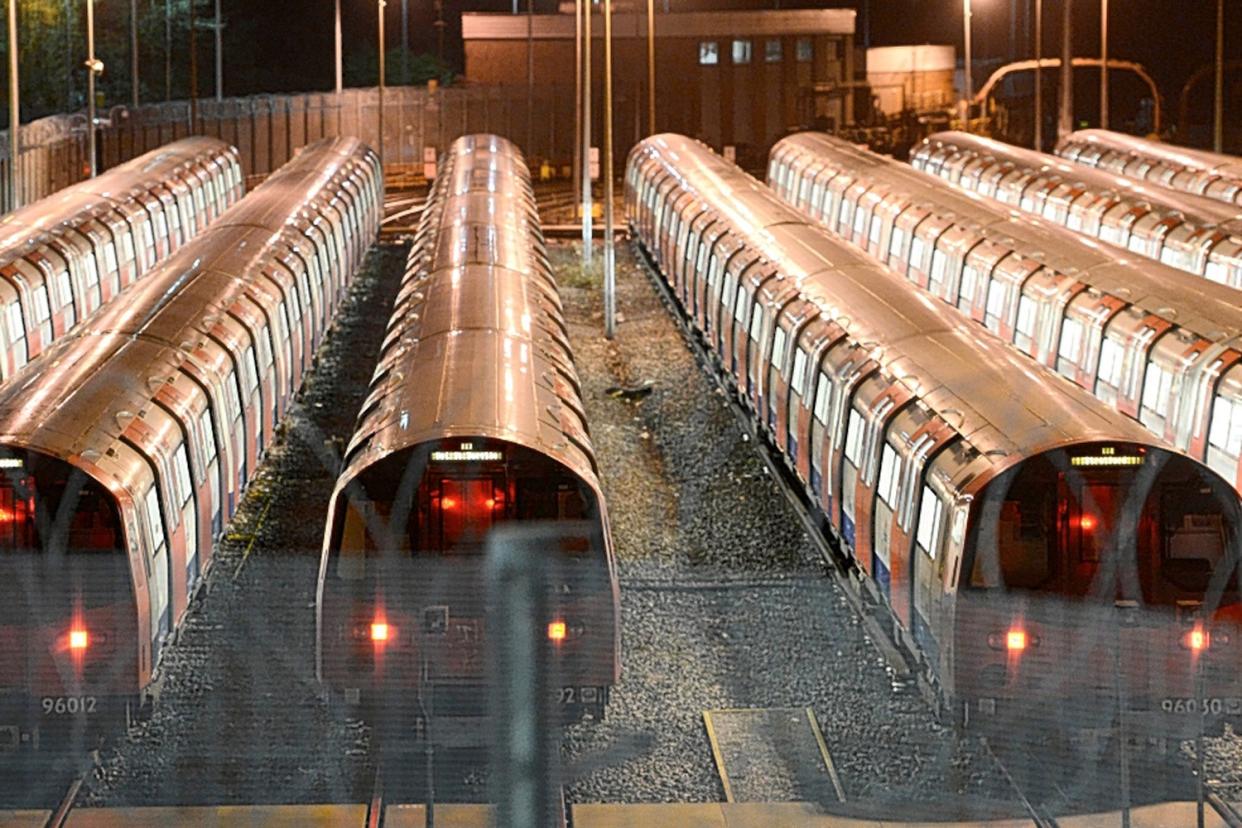Blow to bid for driverless Tube trains after leaked TfL report claims it would be 'poor value'

Boris Johnson’s ambition to change London Underground to driverless trains took a blow today with a leaked report claiming it would cost £7 billion and show “poor value for money”.
The cost-benefit analysis was carried out by Transport for London (TfL) and leaked to delighted rail unions who said the project should be pushed into the sidings.
It comes at a sensitive time, coming days after a previous leak revealed Transport Secretary Grant Shapps wrote to Mayor Sadiq Khan demanding big changes in return for a new TfL bailout, including the speeding up of “inadequate” progress on implementing driverless trains. The Prime Minister has also spoken in favour of driverless trains as a possible condition of future funding for TfL.
Now the railway drivers' union, Aslef, which obtained the leaked document, said the new document proves the idea of running trains without drivers and attendants was a "politically-driven fantasy".
The document is a slide show presentation said to have been prepared for TfL managers. While it said that it would be possible to convert lives to run driverless services, the costs would be huge and the benefits, including more reliability, would be “marginal”.

It concluded that the case for converting old lines "is not financially positive given the high capital costs", although it could make sense to include driverless capability on new lines and upgrades.
Among the essential costs would be new platform barriers and doors to stop people falling onto the track, and new signalling and other equipment. Benefits would include better platform safety and slight increases in reliability.
The document said there would still need to be a train operator on every Tube train because trains without any driver or attendant were not suitable for most of London’s lines. Unlike Paris, whose metro is mainly shallow and roomy cut and shut tunnels, many of London’s Tube lines are deep and only inches wider than the trains themselves.
The document, dated August, continues: "Value for money is significantly weakened if driverless conversion is undertaken via a retro-fit of existing trains and infrastructure, due to increased costs, risks and shorter remaining life of key assets.
"Value for money and affordability of driverless conversion should be considered as opportunities arise alongside planned line upgrade and asset renewal programmes through the 2020s-2040s.
"The driverless case is unlikely to be strong enough to justify prioritisation ahead of planned capacity enhancements on the LU network."
It concluded: "Staffing efficiencies are offset by increased maintenance costs of the additional safety systems, surveillance, security fencing etc required.
"Overall the case is not financially positive given the high capital costs.

"Its implementation network-wide will present a considerable affordability challenge which will further exacerbate TfL's current financial and longer-term funding position."
Finn Brennan, Aslef's organiser on London Underground, said: "The cost of conversion would make TfL's current financial crisis and the long-term funding issues facing TfL much worse.
"Prime Minister Boris Johnson has said that introducing driverless trains should be a condition of a funding settlement for TfL, but these documents show that not only is there no business case for this, but it would make TfL's financial position much worse.”
He added: "Aslef has always pointed out that driverless trains on London Underground are a politically-driven fantasy. These documents show that we are right.”
There was no immediate response from Mr Shapps’s office.
A TfL spokesman confirmed that the analysis was genuine and said it was prepared for the Government-commissioned review of TfL finances.
He said: "Our train operators perform a fundamental safety-critical role on the transport network and, along with all our frontline staff, have played an essential role in keeping London moving during the pandemic.
"We put together this analysis for the KPMG review into TfL's finances, commissioned by the Government following the emergency funding agreement agreed in May.
"The possibilities, costs and benefits of driverless trains are things that TfL has looked at in the past and will continue to keep under review but it is not something we are actively pursuing."
Read more
As row rages over TfL bailout and C-charge... who really runs London?
TfL bailout row grows as Khan slams minister over 'political games'
Mayor condemns price hike 'triple whammy' as part of TfL funding
Government 'threatens to seize control of TfL if demands not met'

 Yahoo News
Yahoo News 
